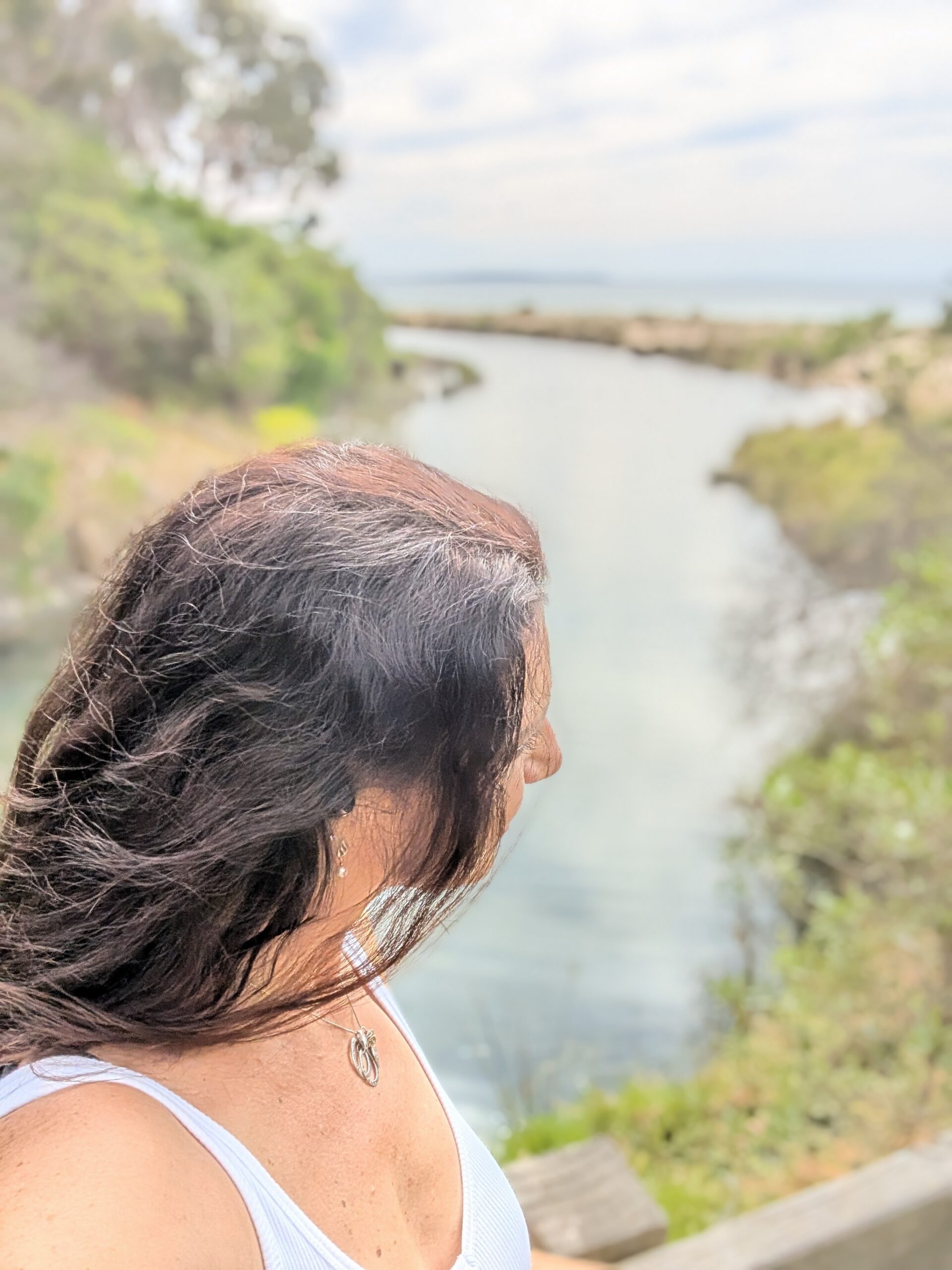How do we know when we are in the right place? Not just physically, but in a way that resonates deep within us—when something inside whispers, you’re home. What is this internal compass, and what happens when it goes silent? Should we search for it, or does it find us?
This thought surfaced for me after meeting a beautiful person in the therapy field. She reminded me that listening to my body isn’t just something I encourage my clients to do—it’s something I need to practice for myself. Over the weekend, I felt grounded in a way I hadn’t in a while. I didn’t have to analyze or rationalize it. I just felt it.
Today, as I walked through a breathtaking landscape, I felt lifted. Yesterday, in conversation with her, I felt the same. It felt right. It felt like home. 
The Body’s Quiet Knowing
Our bodies hold an innate wisdom that words can’t always capture. It speaks to us through sensations—a warmth, a deep breath, a sense of ease. When we find ourselves in the right place, whether with people or in a certain environment, there’s an unspoken rightness. It’s not forced or overthought; it simply is.
But what happens when that feeling is absent? When we find ourselves in spaces that feel neutral, unclear, or even wrong? Do we stay, hoping the feeling will emerge, or do we move toward something that awakens it?
When the Compass Goes Silent
There are times when our internal guide seems to go quiet when we don’t feel anything at all—no push, no pull, just a vague uncertainty. This can be unsettling. We might question whether we’re disconnected from ourselves or if the place we’re in has simply lost its meaning.
In those moments, the question isn’t always should I leave? but rather what am I not hearing? Are we too busy to listen? Have we been conditioned to ignore our instincts? Or is it possible that some places and people simply don’t evoke a response because they’re not meant to?
Should We Stay in Places That Feel Unclear?
There’s a difference between uncertainty and absence. Sometimes, uncertainty means we’re evolving, stretching beyond what’s comfortable. Other times, it’s a sign that something isn’t aligned with who we are. The absence of feeling—when a place or a relationship feels emotionally vacant—can be an answer in itself.
If we return to places or people that once made us feel at home, will the feeling remain? Or does home shift as we do?
Trusting when it feels right
This weekend reminded me that home isn’t always a physical space—it’s an alignment, a resonance, a knowing. It’s the people who see us, the places that let us breathe, the moments that don’t require explanation.
Maybe the real work is not just seeking home but learning to trust it when we find it. And when that voice inside us grows quiet, maybe it’s not because we’re lost, but because we need to slow down and listen. Are we too busy to listen? Have we been conditioned to ignore our instincts? Or is it possible that some places and people simply don’t evoke a response because they’re not meant to?






